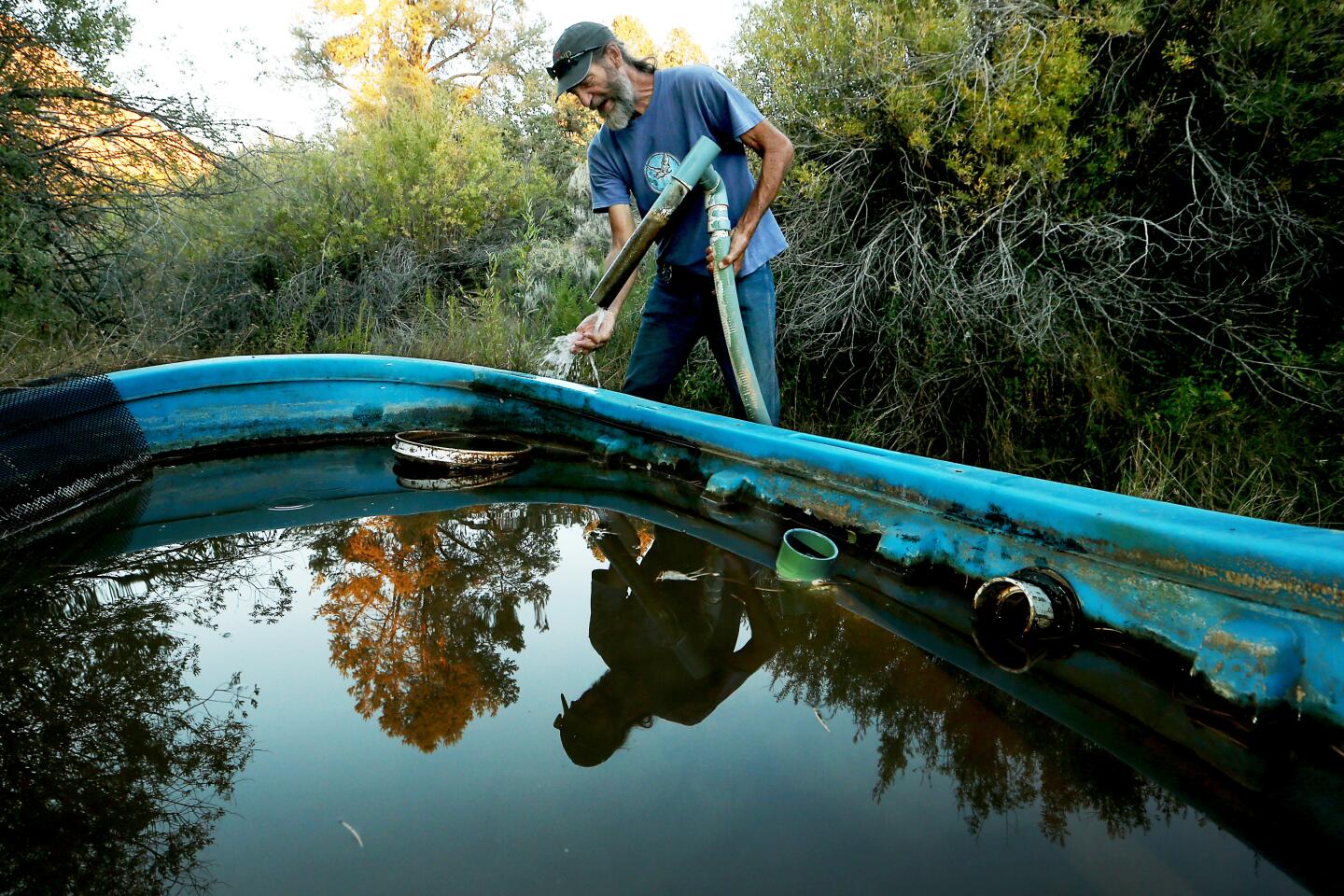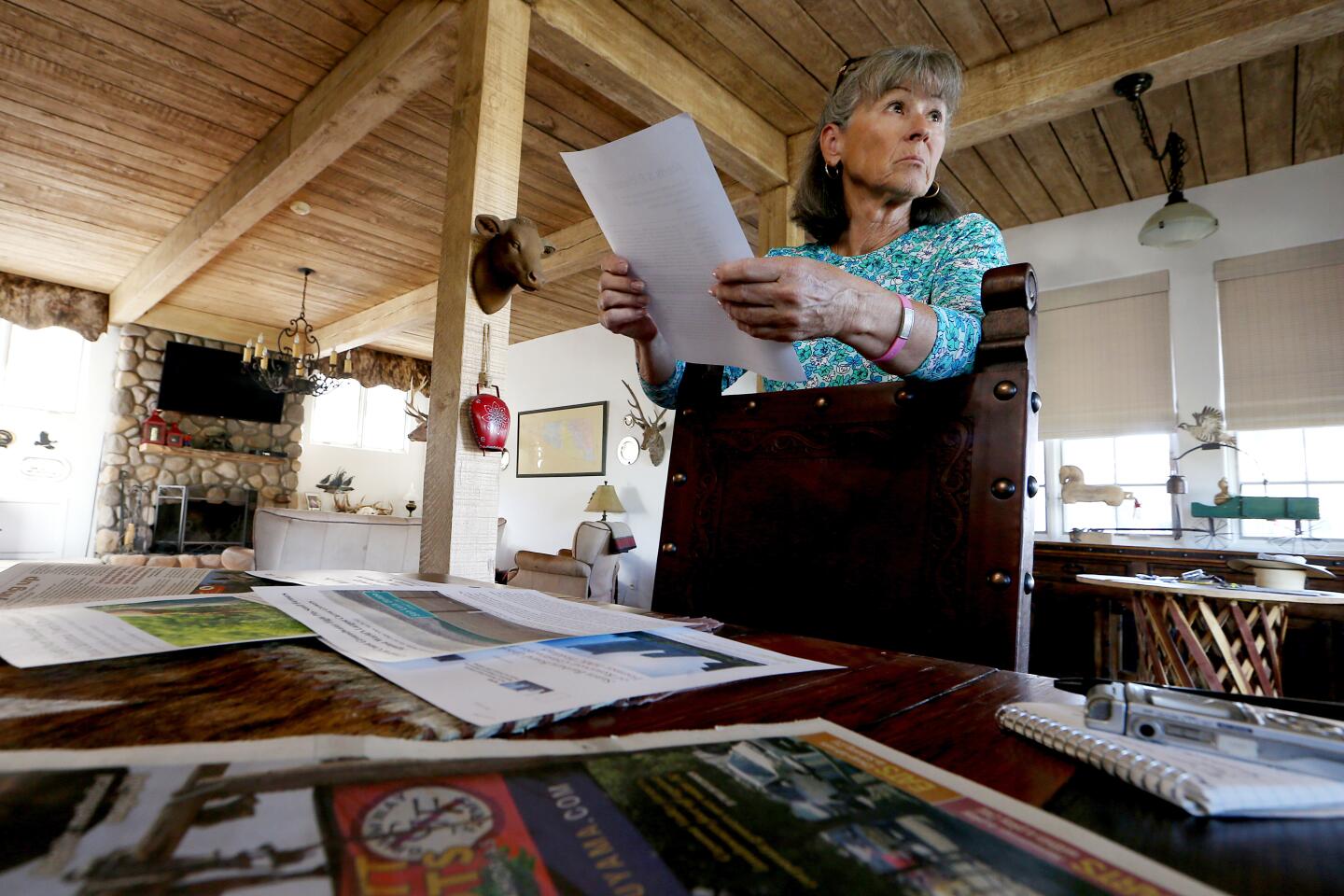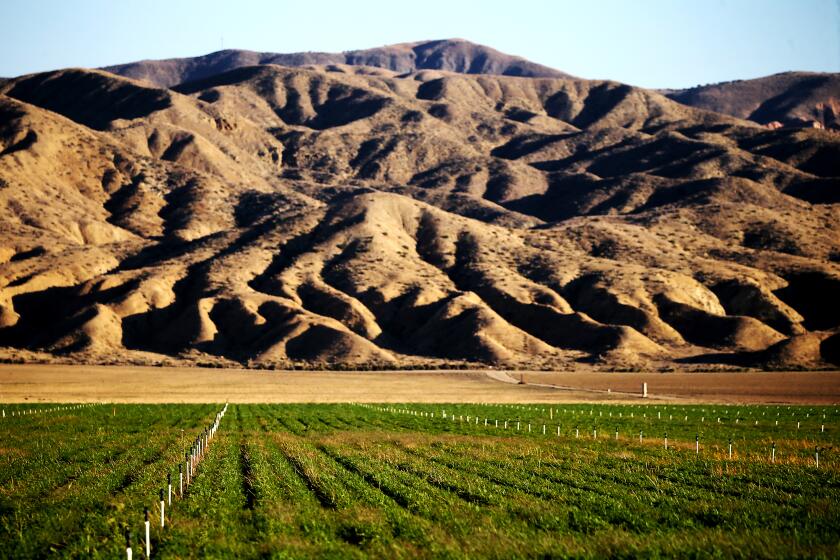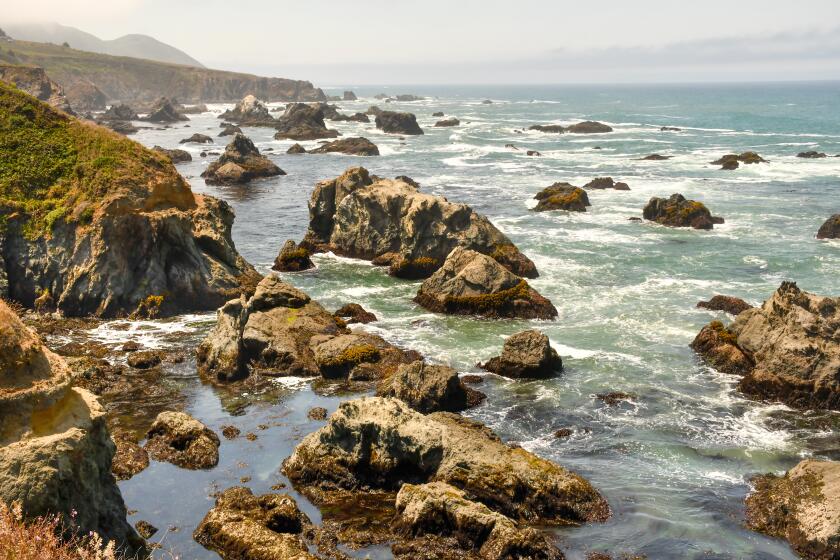Many people who live among the cattle ranches and farms in the Cuyama Valley have banded together in a campaign calling for a boycott of carrots.
The effort targets two large carrot growers, Grimmway Farms and Bolthouse Farms, which sued asking a court to determine groundwater allocations for property owners throughout the valley. The two companies have recently dropped out of the lawsuit, but other corporate entities that lease land to the growers remain in the water adjudication case as plaintiffs.
Residents in the rural community north of Santa Barbara say they plan to continue protesting the companies’ tactics by boycotting carrots. Here’s what several people in the Cuyama Valley have to say about the current fight over water and their community’s future.
Jake Furstenfeld, a cattle rancher and boycott organizer
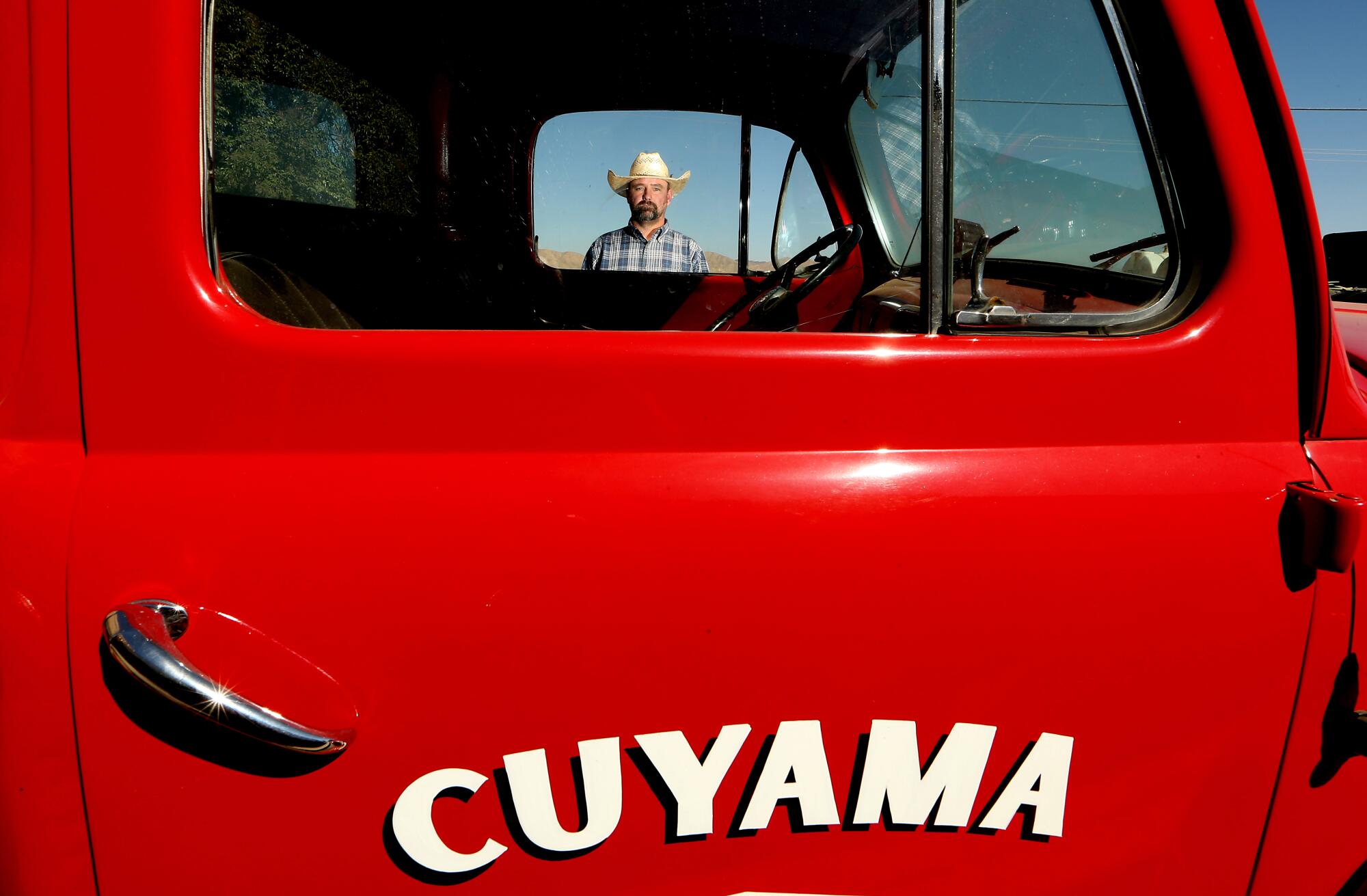
“I’ve never seen our community more united on something”
Jake Furstenfeld has for years served on an advisory committee to the Cuyama Basin Groundwater Sustainability Agency, discussing plans to reduce pumping alongside representatives of the carrot companies. In that process, he said, he felt everyone had a voice. But he’s now concerned the carrot growers, which have been overpumping water for years, might end up controlling a large share of the remaining water, to the community’s detriment.
“I’ve never seen our community more united on something,” Furstenfeld said. “I feel we have to get our word out in order for this valley to survive.”
Furstenfeld said he sees the boycott as an effort to defend the community’s water future for the next generation, including his 9-year-old daughter.
“We’ve got to fight,” he said. “We’re not going to quit.”
In California’s Cuyama Valley, companies pump vast amounts of water to grow carrots. When companies sued residents over water, the community launched a boycott.
Steve Gliessman and Roberta Jaffe, owners of a 5-acre vineyard
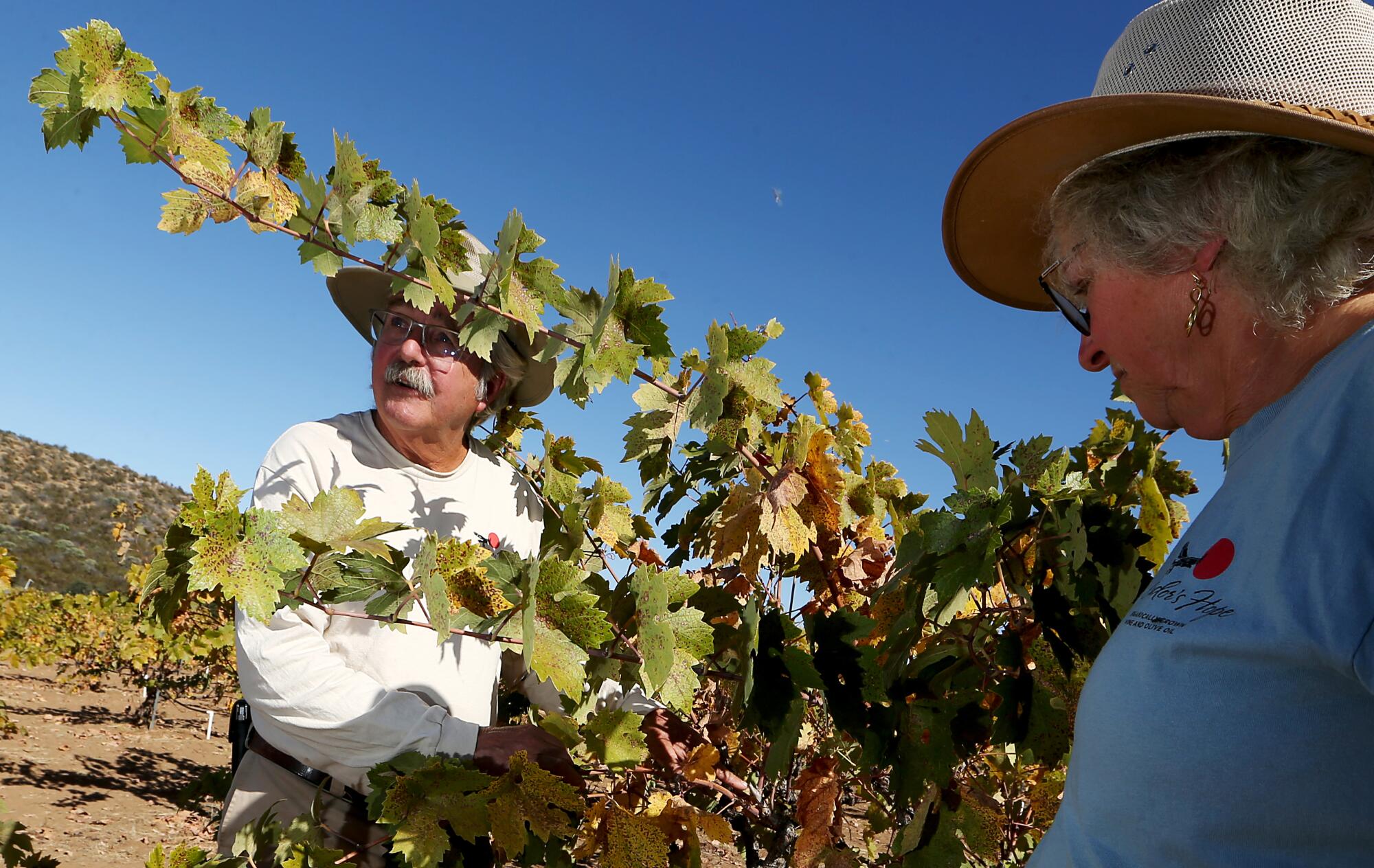
Steve Gliessman and Roberta Jaffe own Condor’s Hope Vineyard at the foot of the Sierra Madre Mountains, where they dry-farm wine grapes without irrigation, relying on the rains.
They have been involved in other debates over water, opposing a large vineyard company’s proposal to build three water storage reservoirs. That project, which Jaffe and Gliessman warned would drain an excessive amount of groundwater, was rejected in a vote last month by Santa Barbara County supervisors.
Aggressive and impactful reporting on climate change, the environment, health and science.
Jaffe said the community has come together to support the carrot boycott because “it’s very much the small guys up against the very deep pockets.”
Gliessman, a retired agroecology professor at UC Santa Cruz, said the lawsuit led residents who were previously supportive of the carrot companies to see them in a new light.
“We said these guys aren’t here for us. They’re here for profit, and that’s all,” Gliessman said. “Boy, did that ignite a level of anger and anxiety amongst the community that led them to put together the boycott.”
Rosalba Fonseca, community advocate
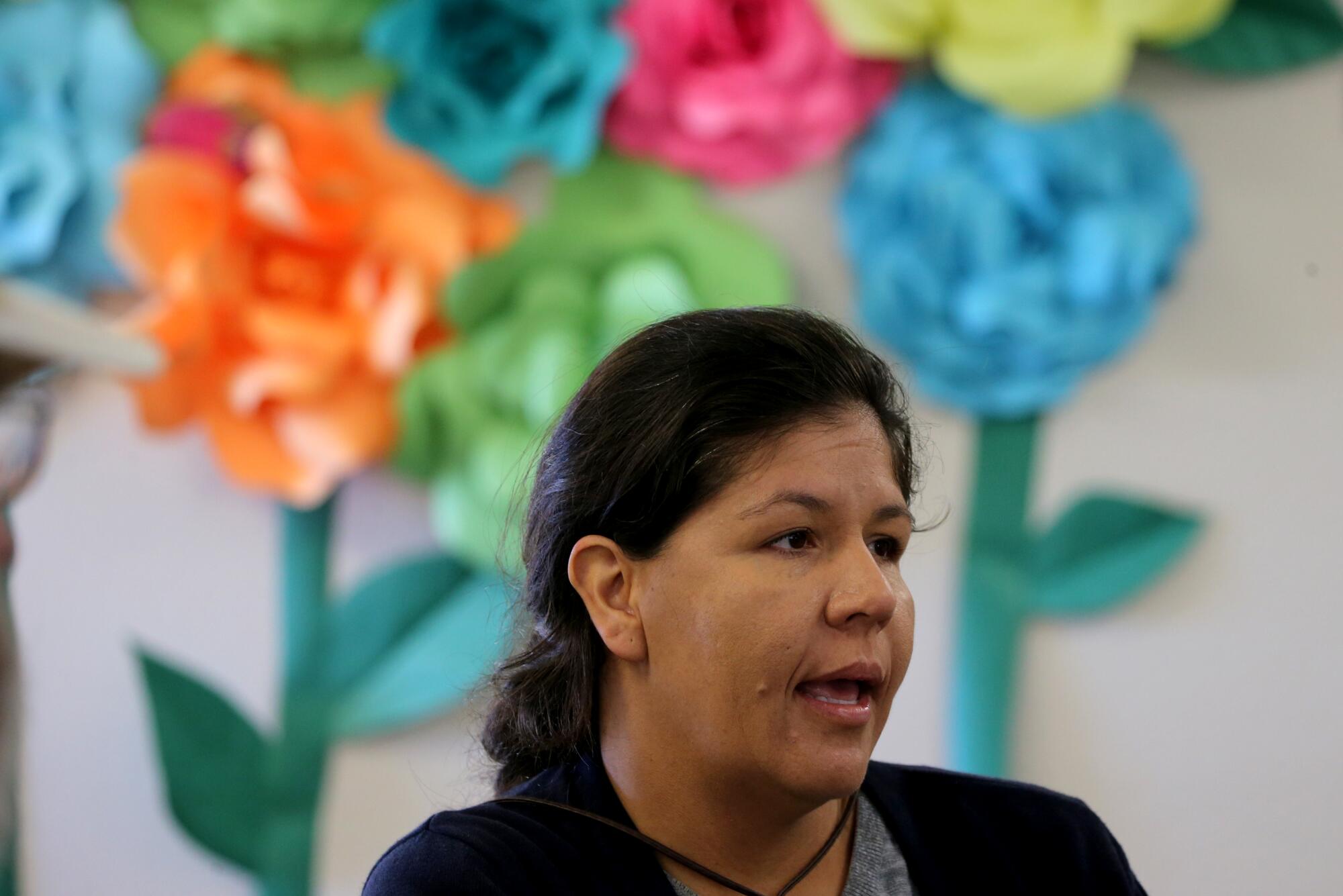
Rosalba Fonseca has lived here for much of her life and works as a community advocate helping farmworkers. She said while she supports the carrot boycott, the conflict over water has created divisions and she hopes the matter can be resolved.
“Since I’ve been here, everybody looks out for each other. So having this dilemma is heartbreaking,” Fonseca said.
She said many low-income families already struggle to pay their water bills, and they’re now facing a plan to raise rates, which includes a $20-a-month surcharge to offset the local utility’s legal costs from the lawsuit.
“They’re concerned about the prices. They’re concerned about not having water in the future,” Fonseca said. But many laborers are also worried, she said, that speaking out might jeopardize their jobs.
“We need the companies,” Fonseca said. “But we also have to make sure that they hear the voice of the community, and understand that the water is essential for us, to not take it away.”
Pam Doiron, rancher
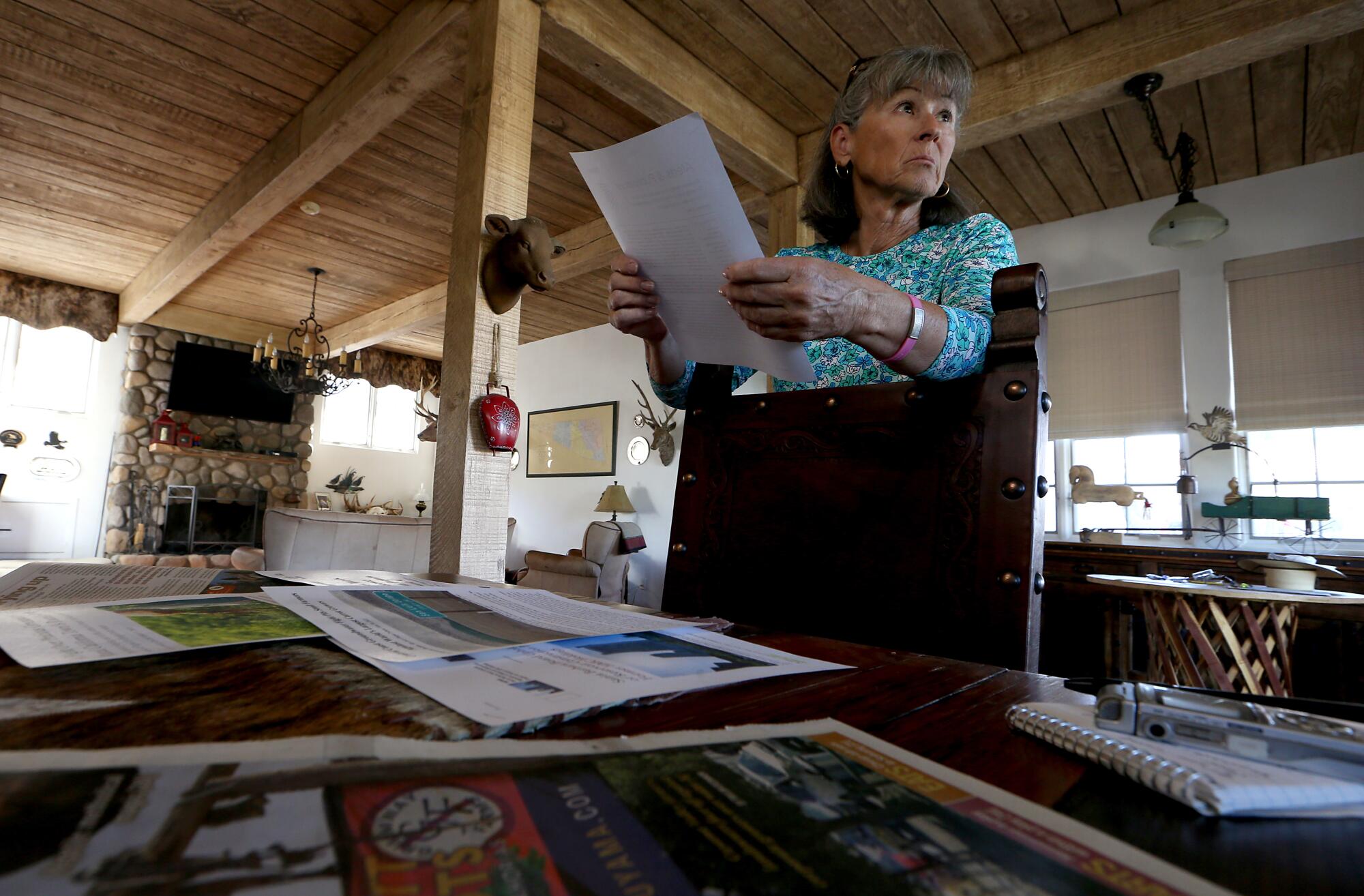
“We live sustainability and we live stewardship.”
Pam Doiron lives in the western part of the valley on a cattle ranch called the Spanish Ranch, which was once part of a Mexican land grant dating to 1843. She and her family use minimal water on the ranch, where cattle graze in pastures beside the Cuyama River.
“We’ve tried to be cautious with our water use,” Doiron said. “We live sustainability and we live stewardship.”
The carrot companies have taken a different approach, she said, by expanding their operations, drilling more wells and pumping heavily.
Doiron said she worries about neighbors hit with legal bills they can’t afford, and about the court case’s potential to harm property values. She said carrots require too much water, and planting them on such a large scale is irresponsible.
“It’s the wrong crop at the wrong place,” she said. “We all know, by living in this valley and taking care of it, that you can’t do a major industrial farming operation and pump like they do — and sustain the lifestyle.”
Brenton Kelly, watershed advocate and community facilitator
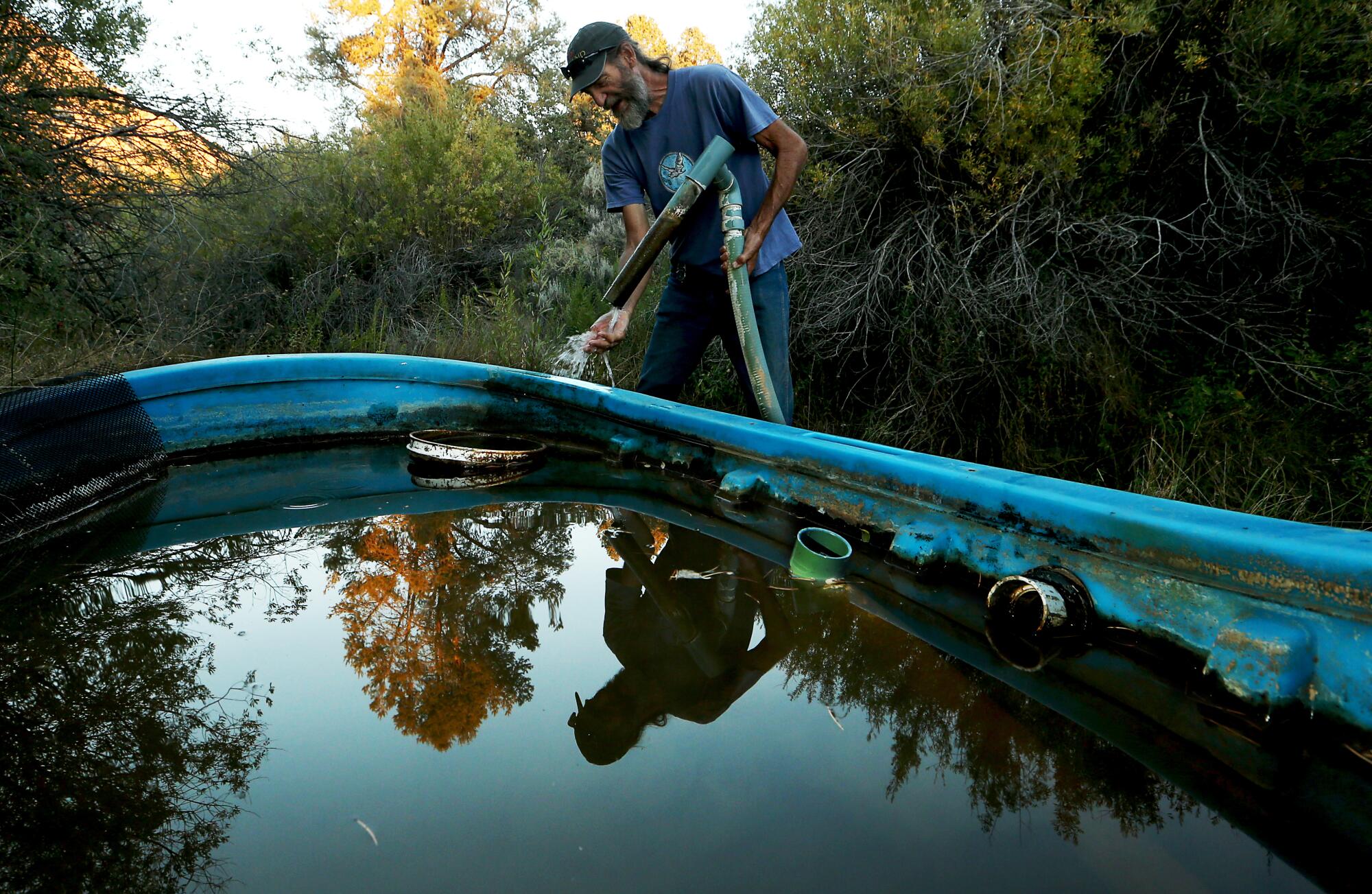
Brenton Kelly helps run a small farm that is radically different from the carrot-growing operations. He lives and works at Quail Springs Permaculture, a nonprofit and off-grid community where he and others grow vegetables and nourish their goats and chickens using water piped from a natural spring.
The water, which emerges from the foothills of Mt. Pinos, is filtered in two tubs, and then piped with gravity to tanks that supply the farm. Kelly has worked for years to help the spring ecosystem recover after decades of intensive cattle grazing.
Kelly said he supports the carrot boycott because “we’re very much against corporate greed.”
“Ultimately, we have to find a way to say that the groundwater is not the corporates’ privatized profit and property right. It just can’t be,” Kelly said. “We have to learn to share these things.”
Kelly also chairs the advisory committee to the Cuyama Basin groundwater agency. He is concerned that with the slow implementation of pumping limits under the local groundwater plan, the area isn’t on track to addressing the overpumping problem, and in the meantime, large growers will continue to deplete the aquifer.
“They’re buying time,” Kelly said. “The sooner we turn down the pumps, the more will be left.”
Bonnie Goller, retired scientist and longtime resident
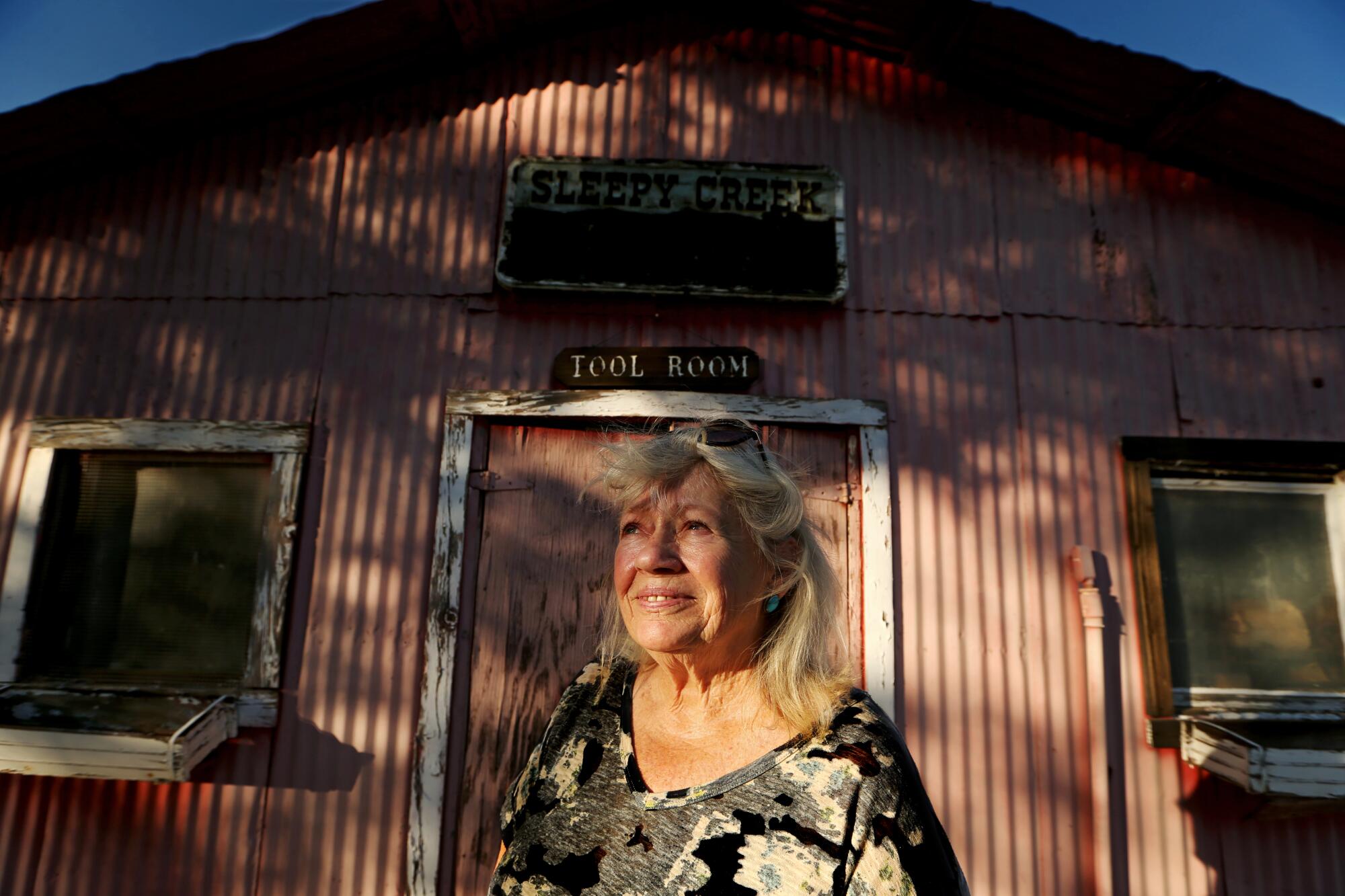
“I feel like our groundwater is under siege.”
Bonnie Goller has lived in the Cuyama Valley for 40 years. She has seen wetlands dry up in parts of the valley as groundwater levels have declined over the years. A creek still flows on her ranch, where she relies on a well for her home and occasionally for her olive trees.
Goller has a “BOYCOTT CARROTS” banner on her front gate. She said she fears the lawsuit could allow large growers to secure more water while placing limits on other landowners.
“I feel like our groundwater is under siege,” Goller said.
She said she worries that because she and her family use very little water, an eventual ruling in the case could prevent her adult sons from drilling a well to grow crops, limiting how the land could be used.
Goller and other residents were incensed when they saw the companies’ legal teams, seeking to notify all landowners, had delivered copies of the lawsuit in envelopes attached to dozens of wooden stakes, which they hammered into the ground along roads.
Goller collected more than two dozen envelopes that were posted on stakes by her gate and along nearby roads. She put the stack of envelopes in a box and mailed them back to the law office.
“This is vandalism!” she told the lawyers in a handwritten note. “Shame on you!”
Carrot companies respond
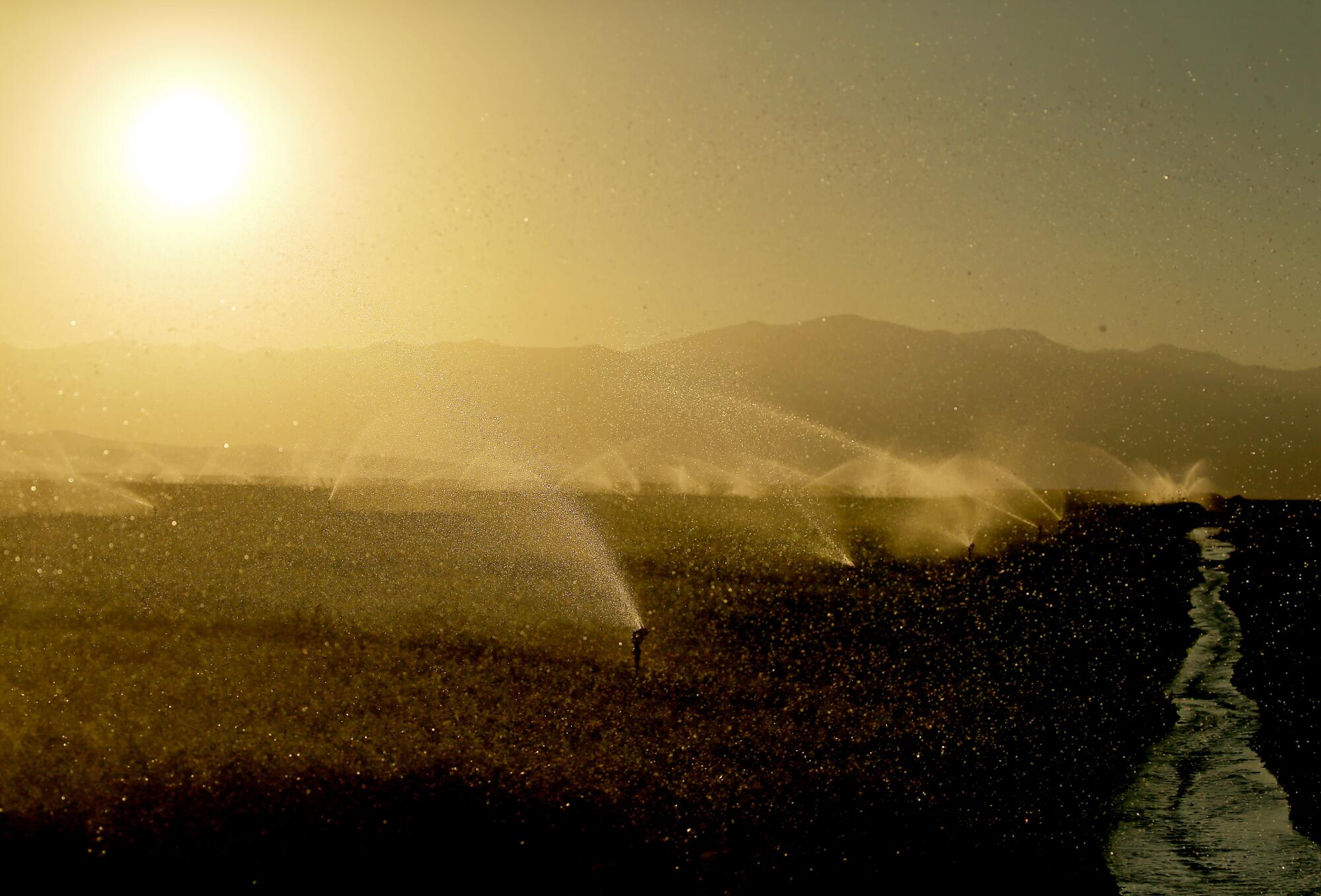
Since the start of the carrot boycott in July, Grimmway Farms and Bolthouse Farms have both filed requests to withdraw from the lawsuit as plaintiffs. Other companies that lease land to the growers, among them Bolthouse Properties, remain in the case.
Grimmway Farms said in an email that its intention in filing the water adjudication lawsuit “was to ensure an equitable allocation of water basin-wide to protect the groundwater rights of all users.”
“It has become clear, however, that many do not support the adjudication,” the company said, “and the goodwill and cooperation that has defined our farming and relationships in the Cuyama Valley for so many years is significantly compromised.”
Grimmway Farms, which leases about 13,000 acres in the valley, said now that it is no longer a plaintiff, “we feel it more appropriate for the landowners to continue this discussion.”
Bolthouse Farms said in an email that the company had reevaluated its involvement in the case and “believe that, given our existing actions to reduce water, it no longer makes sense to continue as a plaintiff.”
Residents who are leading the carrot boycott say they plan to continue their campaign. In addition to seeking an end to the lawsuit, they have demanded the companies stop overpumping groundwater and reimburse residents for their legal fees.
